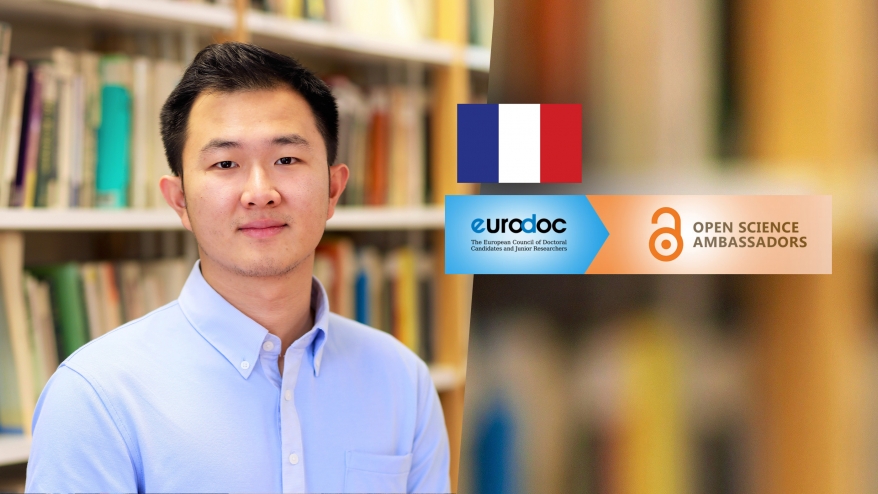We continue introducing members of the Eurodoc Open Science Ambassadors’ cohort 2019/20 who have been promoting openness and transparency in their national, local and institutional communities as we are moving through the International Open Access Week 2020. Meet Sothearath Seang, Open Science Ambassador for France.
Why are you supporting Open Science?
As a PhD Candidate and a young researcher, I have discovered that science in general is not as transparent and open as I thought it was. This has led to inefficiencies and has greatly hindered its progress. Since last year and thanks to Eurodoc, I had the opportunity to learn more about this issue and be trained as an Open Science (OS) ambassador. I believe that we, as PhD Candidates and junior researchers, have a crucial role to play in making science more open and accessible for everyone. That means research data and the ways in which research is performed, must be open whenever possible and not hidden if we want science to benefit more people, whether they are fellow researchers or the general public. To put it simply, the research community should understand that the advantages of OS outweigh those of the traditional system in every dimension and everyone has the power to contribute in making OS a reality.
What are the main challenges for Open Science implementation in your country?
Besides the low level of awareness about OS amongst PhD Candidates, junior and senior researchers, some old habits are difficult to change in the field of research in France. If we take the case of publications, like many other countries, the merit system is based on an annual ranking of journals by the national centre of scientific research. Even if one is aware of the adverse effect of closed journals and understands OS, the merit system dictates that one must publish in a highly ranked journal from the directory to increase one’s chances of successfully applying for a higher position. Initiatives from the government and the international community are slow to take shape, but significant progress has been made in OS in the last few years and we expect it to accelerate in the very near future. It will take some time to shift the research community away from old habits and ideas, but we must continue to believe that we will eventually succeed sooner or later. As John Maynard Keynes puts it: “The difficulty lies not so much in developing new ideas as in escaping from old ones.”
How are you addressing these challenges?
Since last year, one of my missions as a Eurodoc OS Ambassador is to raise awareness and share my experience and knowledge to other PhD candidates and junior researchers. I do this by hosting workshops and speaking in conferences and events such as, to name a few, the Open Science Week last June, and the PhD Summer Camp last year. I also tried to get other PhD Candidates and juniors researchers involved via our local associations. While my focus is on research data now, I am taking part in national and European OS projects such as the XDoranum project in France (an e-learning platform for research data for PhD Candidates), and the Eurodoc OS Survey for Early Career Researchers. Once I finish my PhD, I envisage to help universities and research institutions develop their research data policies.

